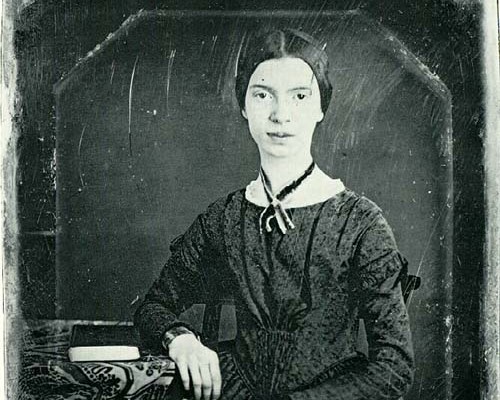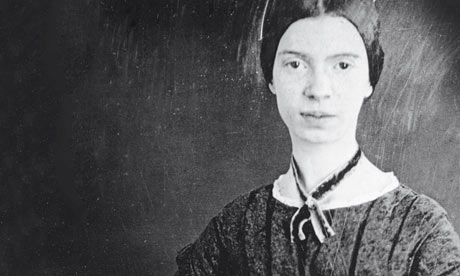About Emily Dickinson: Emily Dickinson was born in 1830, in the town of Amherst, Massachusetts. Though her family was well connected and though her father took active participation in both state and national politics, Dickinson seldom left her home. The number of visitors was few, but they had a huge impact on her life and her poetry. Of note is Reverend Charles Wadsworth, whose departure is believed to have given rise to heartsick poetry. By the 1860s she lived in almost complete isolation. Her work was not recognized during her lifetime, but the publication of her poems posthumously gained her a large recognition and reputation. She died in 1886, aged 55.
About As Imperceptibly as Grief: ‘As Imperceptibly as Grief’ is a representation of Dickinson’s emotions and struggles. The use of beautiful words and verse almost hides this fact. It is possible for one to be mesmerized by her poem and not get her plight. Though the exact date on which the poem is written is not recorded, it can be safely assumed that it was in the period in which one of the few visitors she had departed. This poem can be said to be an emotional response to the departure of either of the three known men, for whom Dickinson had an unrequited love.
Setting of the Poem: The poem is the speaker’s thoughts. It’s inside the speaker’s time. The poem takes place during the end of the summer season. The seasons are changing and the speaker uses this change to represent the shift in her emotions.
Poetic Devices in As Imperceptibly as Grief
Personification: At the end of the poem, Dickinson writes “Our summer made her light escape”. She is personifying summer and giving summer a quality of leaving, which is very much human like. Another example of personification in the poem is in the third stanza – “The morning foreign shone,-A courteous yet, harrowing grace”. The morning is personified here by giving it a quality of courteousness.
Blank Verse: The speaker does not use rhyme in the poem. But it isn’t a free verse. There is a definite meter between alternating lines. The first and third lines in a stanza have 8 syllables whereas the second and fourth lines have 6 syllables, making this poem a blank verse.
Metaphors: The poem is sprinkled with metaphors throughout. The poetess indicates the passage of time by making use of the metaphors of seasons, day and emotions.
Stanza: The poem is divided into 4 stanzas, each having 4 lines. Each stanza represents a phase of time with its own quality and tone.
Summary of the As Imperceptibly as Grief
The summer passed away without me noticing, just like my grief. I cannot say it is untrustworthy for it went without a trace. A perfect quiet descended upon me. A long twilight began. It was like nature withdrew, spending time with itself, isolated.
The night then withdrew early on. And there came the morning, bright and foreign. It was courteous but it was also distressing. Because I knew it was like a guest who would soon be gone.
And like this, our summer made its escape, out into the beautiful.
These are the poetess’s thoughts.
Analysis of As Imperceptibly as Grief
The poetess uses metaphors of seasons, days and emotions to convey the passage of time. The poetess begins with the summer which passes away like her grief. The poetess uses contradictory terms here by comparing grief to summer, a time of happiness in the poetess’s life. The passage of time begins with the transition of the summer season to another.
The season then begins to have shorter day lengths. The night was long and quiet. This time in the poem indicates that of the withdrawal of happiness when all is quiet and everything is isolated.
Then comes the morning. This stanza in the poem refers to all that is good and foreign and temporary. It is compared to the arrival of a guest. Even though the guest is courteous, it still is quite distressing; because, he would be gone again. And so the morning passes, just like the summer. It does so smoothly and naturally, without support. And thus, a full cycle of time passes.
The summer here can be considered to be one of the unrequited loves of Dickinson. The summer being courteous and
Central Idea of the poem: Time passes by without warning. It waits for none. And it will only be painful to hang on and not let go. But it is fine to have the memories of the times, be it happy or sad; because, it is all that remains when everything else passes. Thus, it is important to make the most of the times we have and make lots of memories, so that when the seasons pass and the emotion’s gone, we can live in the memories we have.
The central idea of the poem is to show the passage of time. But it is also a representation of the emotions of the poetess. The emotions she felt when the summer left her, and she was engulfed by night, and when finally the summer came again, bring with it a happy yet harrowing time, and finally when it left again, are all depicted beautifully.
Tone of the poem: The poem starts out with a sad tone. The poet is missing the summer which passed away unnoticed. The tone remains somber in the second stanza. The use of words like quietness, twilight and sequestered (which means isolated) further instill the somber mood. It is nostalgic and lonely at the same time.
The third stanza takes a more positive note but with an inkling of melancholy. The tone is positive because the summer returned. But at the same time, it is melancholic because it would leave again and this knowledge distresses the poetess.
The fourth stanza takes on a tone alike to the first one. But it now takes on a shade of resignation. The poetess accepts the fact that the summer will go, regardless of her wishes.
Conclusion: Emily Dickinson portrays her emotions and struggles quite well in the poem. Emily Dickinson lived most her life in almost complete isolation. There were occasional visitors and these visitors were like the summers she mentioned in the poem. They came sometimes and when they departed, they returned after a long time. The gap between their arrivals is compared to the twilight and their arrival is said to be harrowing. This is because they would have to leave soon. And leave they did, returning her to her ‘sequestered afternoons’. The poem can be considered a personal reflection of Dickinson’s life. This can also be taken as a message. The time we have is limited and it will pass away soon. So before it does, it would be best to make as many memories as possible, so as to not have any regrets.
Some online learning platforms provide certifications, while others are designed to simply grow your skills in your personal and professional life. Including Masterclass and Coursera, here are our recommendations for the best online learning platforms you can sign up for today.
The 7 Best Online Learning Platforms of 2022
- Best Overall: Coursera
- Best for Niche Topics: Udemy
- Best for Creative Fields: Skillshare
- Best for Celebrity Lessons: MasterClass
- Best for STEM: EdX
- Best for Career Building: Udacity
- Best for Data Learning: Pluralsight















